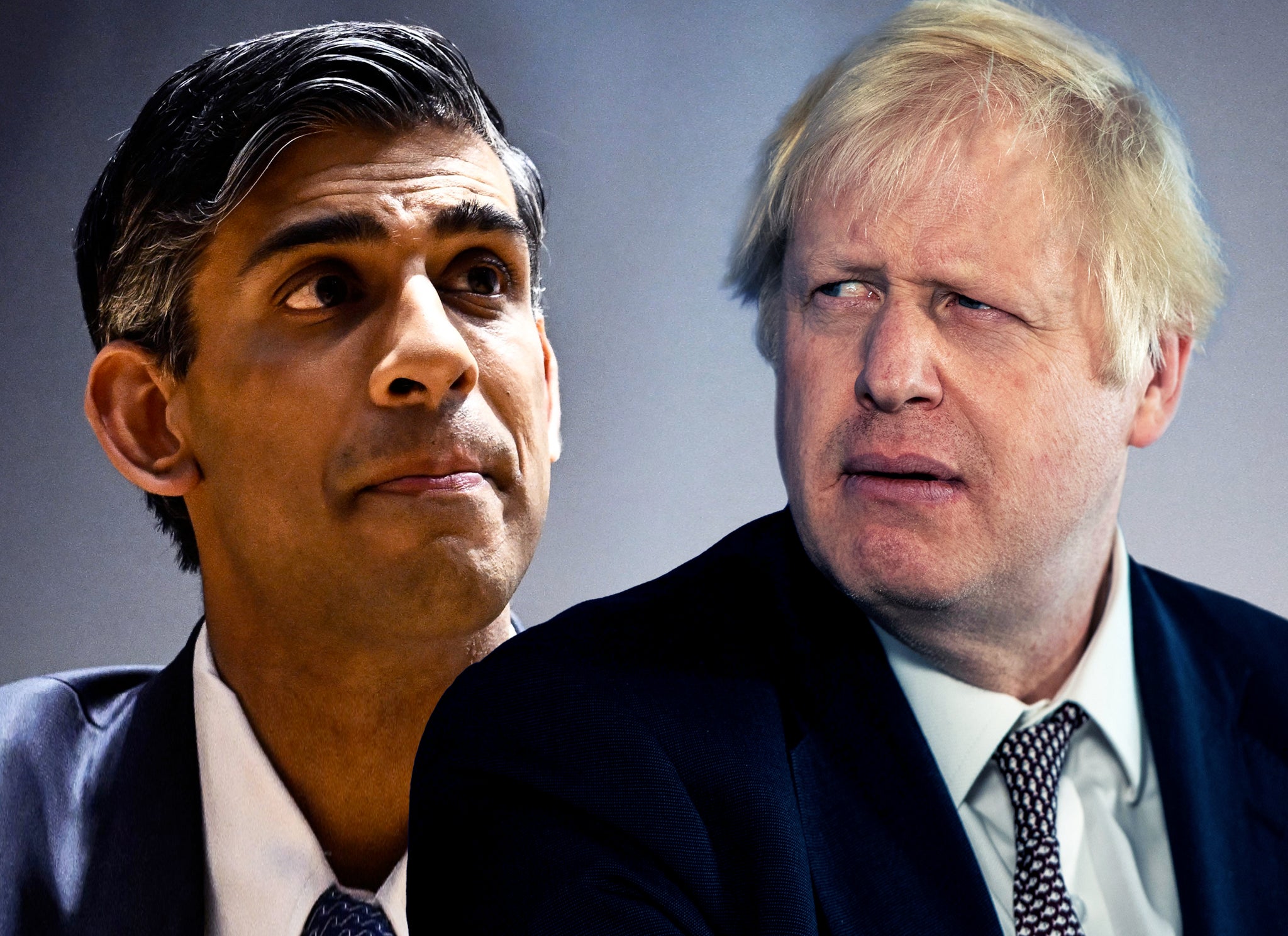Refusal to hand over Covid WhatsApps based on ‘spurious nonsense’, top Tory MP says
Ministrs claim certain messages are ‘unambiguously irrelevant’ to Baroness Hallett’s inquiry

Your support helps us to tell the story
From reproductive rights to climate change to Big Tech, The Independent is on the ground when the story is developing. Whether it's investigating the financials of Elon Musk's pro-Trump PAC or producing our latest documentary, 'The A Word', which shines a light on the American women fighting for reproductive rights, we know how important it is to parse out the facts from the messaging.
At such a critical moment in US history, we need reporters on the ground. Your donation allows us to keep sending journalists to speak to both sides of the story.
The Independent is trusted by Americans across the entire political spectrum. And unlike many other quality news outlets, we choose not to lock Americans out of our reporting and analysis with paywalls. We believe quality journalism should be available to everyone, paid for by those who can afford it.
Your support makes all the difference.Senior Conservative MPs rounded on the government on Monday, saying its refusal to hand over unredacted WhatsApp messages to the Covid Inquiry was based on “spurious nonsense”.
It came as a lawyer representing bereaved families said inquiry chair Lady Hallett will “have to resign” if the government successfully withholds ministers’ messages from scrutiny.
William Wragg, chair of the public administration select committee, said that, if government ministers were going to conduct business via instant messaging apps, then “public inquiries will express an interest in reading what was transacted”.
He was speaking in the Commons where MPs from all sides attacked the decision to launch a legal challenge to an order by inquiry chair Baroness Hallett to hand over messages sent during the pandemic.
Criticising the government, veteran Tory MP Sir Edward Leigh said ministers should “let everything hang out”. He added: “Let them have what they want and let’s get to the truth.”
Former solicitor general and justice secretary Robert Buckland drew laughter as he questioned the government’s decision.
“The courts are going to be very reluctant to get involved in second-guessing the decision-making by Baroness Hallett, and they’re going to have to decide that she’s got things very wrong indeed, before they wish to intervene,” he predicted.
“Therefore doesn’t it beg this question, the old wartime adage: is your journey really necessary?”
Conservative select committee chair Mr Wragg said: “If business [is] conducted by means of WhatsApp, public inquiries will express an interest in reading what was transacted.
“When he says there are certain questions over material that might be unambiguously irrelevant, it is for the chair surely to determine that. There is no prospect [of], and it was rather spurious nonsense to hear some ministers witter on about, personal information about their children being disclosed. That’s not the case.”
Shadow cabinet office minister Fleur Anderson said ministers were “not only undermining trust but public safety” by “potentially undermining and challenging the inquiry”. The move also had a cost of “hundreds of thousands of pounds in taxpayers’ money on legal fees,” she added.

Elkan Abrahamson, a solicitor representing the Covid-19 Bereaved Families for Justice campaign group, said quitting would be the “only logical response” for Lady Hallett if the government succeeds in blocking material.
Lady Hallett has “said quite clearly” she needs the material in order to have a proper inquiry, Mr Abrahamson said. And he described the legal challenge as “an existential struggle between politics and the inquiry”.
“This is something very important to her, and there would only be two responses. One would be to say: ‘Well, alright, I won’t do a proper job, but I will do it anyway.’
“The other would be to say: ‘Well I can’t do it under those circumstances.’ We do not want her to go, I am just pointing out the gravity of the challenge and the implications of it.”
Mr Abrahamson told The Independent it was “difficult to understand” why the government was seeking a judicial review of Lady Hallett’s order for information. He pointed out that the inquiry was set up while Mr Johnson was prime minister and Rishi Sunak was chancellor, so they “weren’t against it at the time”.
“There must be something they are really keen for Lady Hallett and possibly the public not to know about,” he said.
Responding in the Commons, Cabinet Office minister Jeremy Quin said the first court hearing for the judicial review would take place “on or shortly after June 30”.
“There is no question that all internal discussions on Covid in any form requested by the inquiry will be made transparently available to it,” he said.
“What has been redacted and so not provided in response to the notice is material which the Cabinet Office considers to be clearly and unambiguously irrelevant to that work.
“That material includes, for example, communications about purely personal matters and about other aspects of the Government's policy and work, which have nothing to do with Covid.”
It came as TUC general secretary Paul Nowak urged the prime minister to respect the inquiry and not “undermine it”.
The organisation said the UK was hugely unprepared for the pandemic because of years of austerity which left health and social care “dangerously understaffed”.
On the judicial review, Mr Nowak told reporters: “Ministers cannot be judge and jury over what is disclosed to the inquiry. That has to be up to the independent chair to decide.
“And the fact that the prime minister is prepared to spend taxpayers’ money to try and block the handover of evidence is deeply worrying.
“The very least we deserve is transparency from our decision-makers. No one should be allowed to hide from scrutiny.”




Join our commenting forum
Join thought-provoking conversations, follow other Independent readers and see their replies
Comments